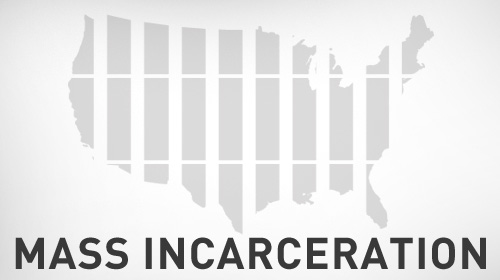
It's a rare day in Washington when Sen. Rand Paul (R-Ky.) and Sen. Patrick Leahy (D-Vt.) agree on anything. So when I heard earlier this week that Paul and Leahy introduced a bill together that gives judges more discretion on mandatory minimum sentences, I had to check my calendar to make sure it wasn't April 1.
Even in today's hyper-partisan era, it seems there's at least one thing people on both sides of the aisle can agree on: our country's one-size-fits-all sentencing practices just don't make sense.
The bipartisan Justice Safety Valve Act of 2013 applies to all federal offenders and allows judges to take individual circumstances into account when handing out sentences under certain circumstances. Overly long mandatory minimums sentences are one of the primary reasons the federal prison population has grown by nearly 800% in the last several decades. They create racial disparity and generate unnecessarily harsh sentences by preventing judges from considering individual circumstances.
To see the devastating impact mandatory minimums have on people, look no further than Hamedah Hasan. When she was 21 years old, she escaped an abusive relationship with her two daughters to live with her cousin, who was involved in dealing crack cocaine. Feeling indebted to this cousin, she agreed to run various errands and transfer money.
Though Hamedah never used drugs herself, she was indicted and convicted for conspiracy to distribute crack cocaine. Despite having no prior criminal record, the judge had no choice but to issue a life sentence, due to mandatory minimum sentencing for crack cocaine and the mandatory sentencing guidelines on the books at the time. Her sentence was later reduced to 27 years. Thanks to the work of the ACLU and other criminal justice advocacy organizations, Hamedah was released last year after 19 years in prison.
For years, the harsher penalties for crack versus powder have disproportionately impacted African-Americans. Had Hamedah been convicted of an offense involving powder as opposed to crack cocaine, she would not have faced such a harsh penalty, since at the time of her sentencing, the disparity between sentences for crack and powder cocaine was 100-to-1. That disparity has since been reduced to an 18-to-1 ratio through the Fair Sentencing Act.
By putting some power back into the hands of judges, the Justice Safety Valve Act goes a long way toward restoring fairness in the criminal justice system. Since defendants have to meet very specific criteria to qualify for sentencing leniency, it isn't perfect, but it's a big step toward reforming one of our judicial system's most unfair practices. Together with the Fair Sentencing Act, this new bill represents a positive change in thinking about the way we sentence people to prison.
Beyond the bill itself, the fact that Paul and Leahy are uniting on this issue should send a clear message that it's possible to be tough and smart on crime. This isn't a Republican or Democratic issue – it's an issue of fairness for all Americans.
Learn more about mandatory minimum sentences and other civil liberty issues: Sign up for breaking news alerts, follow us on Twitter, and like us on Facebook.



